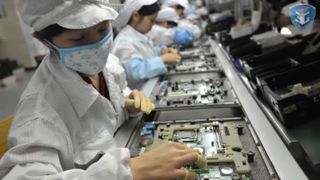After Russia invaded Ukraine in late February, large hardware and software companies began to leave the country in a bid not to support the bloody war in any way. Now that the world's leading PC makers do not officially sell systems in Russia, many end users have to buy components to repair or upgrade their existing machines, according to media reports.
Sales of PC components for desktops and laptops increased by two – four times in the first nine months of 2021 in Russia compared to the same period a year ago, reports Cnews (opens in new tab). Apparently, Russians are buying virtually all PC parts they can install themselves, including graphics cards, processors, memory, solid-state drives, hard drives, motherboards, and PC chassis, according to data from large retailers like M.Video-Eldorado, Ozon, and Wildberries.
While formal companies like Asus and Nvidia ceased shipping products to Russia earlier this year, their partners continued to send their motherboards and graphics cards to the nation, albeit indirectly, as they continued to capitalize on demand. Also, companies like Lenovo (and local grey box makers) have benefited from Dell's and HP's decision to leave the Russian market.
While the most components got more expensive than they used to be, some of them (e.g., graphics cards, SSDs) are a bit cheaper this year despite strong demand and even shortages. Moreover, as it turns out, some suppliers increased shipments of their parts to Russia.
Another essential factor about the Russian PC market is that the wait for getting official repairs on broken tech products has gotten significantly longer, which is perhaps one of the reasons why people now prefer to buy illegally imported components and install them themselves.
All-in-all, while many high-tech companies left Russia and no longer sell their products in the country, there are still those that capitalize on this market. Of course, it is hard to tell whether these companies can satisfy 100% of the country's needs in PCs and computer components, but it looks like one can still buy new hardware in the country, albeit at high prices.

